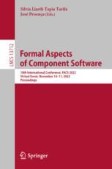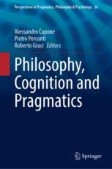Search
Search Results
-
Exhaustive control as movement: The case of Wolof
This paper investigates control constructions in the Niger-Congo language Wolof, which offers several insights into the phenomenon of control. First,...

-
The lexical semantics of finite control: A view from Japanese
In this paper, we propose a semantic analysis of control verbs in Japanese that take finite clauses marked by the nominalizer koto . We argue for an...

-
Control theory and the relationship between logophoric pronouns and logophoric uses of anaphors
Long distance (or “exempt”) uses of anaphors in Eurasian languages are often compared to the special logophoric pronouns found in certain West...

-
Foundational English literacy development in India: a randomised-control trial using phonics instruction and GraphoLearn
Foundational literacy is a key lever for achieving higher levels of learning and societal wellbeing. However, with an enrolment of over 250 million...

-
Adjunct control in German, Norwegian, and English
This paper presents an overview of adjunct control in German, Norwegian, and English, comprising adverbial infinitives, adverbial present and past...

-
Proxy control
The control dependency in grammar is conventionally distinguished into two classes: exhaustive ( i → i ) and non-exhaustive ( i → i + ( j )). Here, we show...

-
Word processing difficulty and executive control interactively shape comprehension monitoring in a second language: an eye-tracking study
Successful reading comprehension—especially in a second language (L2)—relies on the ability to monitor one’s comprehension, that is, to notice...

-
Formal Model In-The-Loop for Secure Industrial Control Networks
Current trends of digitalization are becoming significantly prevalent within the field of industrial control systems. While in recent history a...
-
Ideological Control in a Slovene Socialist State Publishing House: Conformity and Dissent
This chapter argues that in socialist states translation was crucial for the success of the ideological programme of the Communist Party, and that...
-
The longitudinal relationship between early inhibitory control skills and emergent literacy in preschool children
This study analyses the longitudinal relationship between early inhibitory control skills and subsequent emergent literacy. At Time 1, a sample of 50...
-
Non-canonical control in Russian converbial clauses
It has been acknowledged that the null subject of a converbial clause in Russian is canonically controlled by the Nominative subject of a main clause...

-
High-Variability Phonetic Training Under Different Conditions: Individual Differences in Auditory Attention Control
Cognitive attention control guides auditory processes during speech processing but its contribution to L2 speech learning remains under-researched....
-
Ihuan Yehhuan Tlacuauh Tlamauhtiah in Ichcapixqueh. “And the Shepherds Are Inspiring Great Fear”. Environment, Control of Resources and Collective Agency in Colonial and Modern Tlaxcala
This chapter explores selected aspects of Tlaxcalan history, showcasing the complexity of human–environment relations that have been affected both by...
-
Translating and Adapting the Multidimensional Health Locus of Control Scale FORM C to a Chinese Scale Specifically Used for Measuring People’s Beliefs About the Prevention and Treatment of Depression in Mainland China
Depression is a common mental disorder that besets an estimated 5% of adults worldwide. The health locus of control construct is likely to mediate...
-
The Acquisition of Implicit Control in European Portuguese
FewImplicit control studiesEuropean Portuguese have assessed children’s comprehensionComprehension of the null infinitival subject (PRO) in...
-
Exemplification of Mental Health Scales
The chapter exemplifies mental health scales with (1) the Multidimensional Health Locus of Control (MHLC) Form C which has been made...
-
Perspectival control and obviation in directive clauses
The paper proposes a new type of control configuration: perspectival control. This involves control of a non-argument PRO that combines with a...
-
Finiteness in a language without finite morphology: An experimental study of Mandarin Chinese
A theme in research on finiteness suggests that finiteness is an abstract formal property of clauses that can be found across languages, even though...

-
Situated Agency and Constitutive Moral Luck
Character ethics needs a way to account for the role of constitutive moral luck. The character ethics tradition holds agents responsible for...
